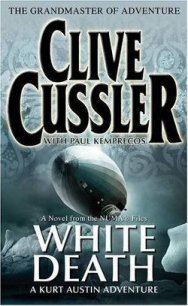The Whispering Land - Durrell Gerald (книги без регистрации бесплатно полностью TXT) 📗
"I think, Gerry, that sometime they are all deceased," said Dicky gravely.
"Well, if they are I suggest we spread out and find ourselves some beds," I said.
So we climbed the marble staircase and found ourselves three bedrooms, with beds made up, by the simple expedient of opening every door in sight. Eventually, having found a place to sleep, Dicky and I went downstairs to see if the hotel boasted of any sanitary arrangements.* The first door we threw open in our search led us into a dim bedroom in which was an enormous double-bed hung with an old-fashioned canopy. Before we could back out of the room a huge figure surged out from under the bedclothes like a surfacing whale, and waddled towards us. It turned out to be a colossal woman, clad in a flowing, flannel nightie, who must have weighed somewhere in the neighbourhood of fifteen stone.* She came out, blinking, into the hallway, pulling on a flowing kimono of bright green covered with huge pink roses, so the effect was rather as if one of the more exotic floral displays of the Chelsea* Flower Show had suddenly taken on a life of its own. Over her ample bosoms spread two long streamers of grey hair which she flicked deftly over her shoulder as she did up her kimono, smiling at us with sleepy goodwill.
"Buenas noches"* she said politely.
"Buenas noches, senora" we replied, not to be outdone in good manners at that hour of the morning.
"Hablo con la patrona?"* inquired Dicky.
"Si, si, senor" she said, smiling broadly, "que quieres?"*
Dicky apologized for our late arrival, but la patrona waved away our apologies. Was it possible, Dicky asked, for us to have some sandwiches and coffee? Why not? inquired la patrona. Further, said Dicky, we were in urgent need of a lavatory, and could she be so kind as to direct us to it. With great good humour she led us to a small tiled room, showed us how to pull the plug, and stood there chatting amiably while Dicky and I relieved the pangs of nature. Then she puffed and undulated her way down to the kitchen* and cut us a huge pile of sandwiches and made a steaming mug of coffee. Having assured herself that there was nothing further she could do for our comfort, she waddled off to bed.
The next morning, having breakfasted, we did a rapid tour of the town. As far as I could see, apart from the introduction of electricity, it had changed very little since Darwin's day, and so we left and sped down a hill and across the wide iron bridge that spanned the rusty red waters of the Rio Negro. We rattled across the bridge from the Province of Buenos Aires to the Province of Chubut, and by that simple action of crossing a river we entered a different world.
Gone were the lush green plains of the Pampa, and in their place was an arid waste stretching away as far as the eye could see on each side of the dusty road, a uniform pelt of grey-green scrub composed of plants about three feet high, each armed with a formidable array of thorns and spikes. Nothing appeared to live in this dry scrub, for when we stopped there was no bird or insect song, only the whispering of the wind through the thorn scrub in this monochromatic Martian landscape,* and the only moving thing apart from ourselves was the giant plume of dust we trailed behind the vehicle. This was terribly tiring country* to drive in. The road, deeply rutted and pot holed, unrolled straight ahead to the horizon, and after a few hours this monotony of scene numbed one's brain, and one would suddenly drop off to sleep to be awoken by the vicious scrunch of the wheels as the Land-Rover swerved off into the brittle scrub.
The evening before we were due to reach Deseado this happened on a stretch of road, which, unfortunately, had recently been rained upon, so that the surface had turned into something resembling high-grade glue. Dicky, who had been driving for a long time, suddenly nodded off* behind the wheel, and before anyone could do anything sensible, both Land-Rover and trailer had skidded violently into the churned-up mud at the side of the road, and settled there snugly, wheels spinning like mad. Reluctantly we got out into the bitter chill of the evening wind, and in the dim sunset light set to work to unhitch the trailer and then push it and the Land-Rover separately out of the mud. Then, our feet and hands frozen, the five of us crouched in the shelter of the Land-Rover and watched the sunset, passing from hand to hand a bottle of Scotch* which I had been keeping for just such an emergency.
On every side of us the scrubland stretched away, dark and flat, so that you got the impression of being in the centre of a gigantic plate. The sky had become suffused with green as the sun sank, and then, unexpectedly, turned into a very pale powder-blue. A tattered mass of clouds on the western horizon suddenly turned black, edged delicately with flame-red, and resembled a great armada of Spanish galleons waging a fierce sea-battle across the sky, drifting towards each other, turned into black silhouette by the fierce glare from their cannons. As the sun sank lower and lower the black of the clouds became shot and mottled with grey, and the sky behind them became striped with green, blue and pale red. Suddenly our fleet of galleons disappeared, and in its place was a perfect archipelago of islands strung out across the sky in what appeared to be a placid, sunset-coloured sea. The illusion was perfect: you could pick out the tiny, white-rimmed coves in the rocky, indented shoreline; the occasional long, white beach; the dangerous shoal of rocks formed by a wisp of cloud at the entrance to a safe anchorage; the curiously-shaped mountains inland covered with a tattered pelt of evening-dark forest. We sat there, the whisky warming our bodies, watching enraptured the geography of this archipelago unfold. We each of us chose an island which appealed to us, on which we would like to spend a holiday, and stipulated what the hotel on each of our islands would have to provide in the way of civilized amenities.
"A very, very big bath, and very deep," said Marie.
"No, a nice hot shower and a comfortable chair" said Sophie.
"Just a bed," said Jacquie, "a large feather bed."
"A bar that serves real ice with its drinks," I said dreamily.
Dicky was silent for a moment. Then he glanced down at his feet, thickly encrusted with rapidly drying mud.
"I must have a man to clean my feets," he said firmly.
"Well, I doubt whether we'll get any of that at Deseado," I said gloomily, "but we'd better press on."
When we drove into Deseado at ten o'clock the next morning, it became immediately obvious that we could not expect any such luxuries as feather beds, ice in the drinks, or even a man to clean our feets. It was the most extraordinarily dead-looking town I had ever been in. It resembled the set for a rather bad Hollywood cowboy film, and gave the impression that its inhabitants (two thousand, according to the guide-book) had suddenly packed up and left it alone to face the biting winds and scorching sun. The empty, rutted streets between the blank-faced houses were occasionally stirred by the wind, which produced half-hearted dust-devils,* that swirled up for a moment and then collapsed tiredly to the ground. As we drove slowly into what we imagined to be the centre of the town we saw only a dog, trotting briskly about his affairs, and a child crouched in the middle of the road, absorbed in some mysterious game of childhood. Then, swinging the Land-Rover round a corner, we were startled to see a man on horseback, clopping slowly along the road with the subdued aid of one who is the sole survivor of a catastrophe. He pulled up and greeted us politely, but without interest, when we stopped, and directed us to the only two hotels in the place. As these turned out to be opposite each other and both equally unprepossessing from the outside, we chose one by tossing a coin and made our way inside.



